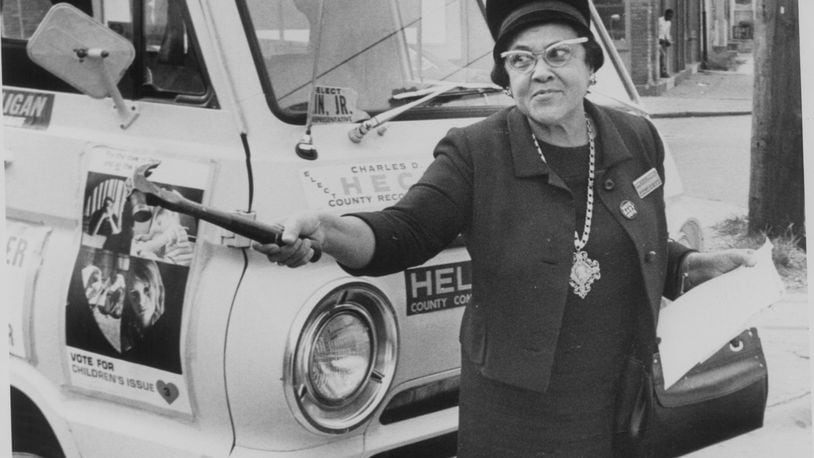While Black History Month has received criticism — some opponents say it would be better to make every month an official celebration of black history — supporters believe it is an opportunity to shine a spotlight on the accomplishments of individuals who have made a difference ffor all citizens.
In regards to Dayton’s own black history, the poet Paul Laurence Dunbar, a contemporary and friend of the Wright Brothers, Ohio Rep. C.J. McLin Jr., former Dayton Mayor Rhine L. McLin and Edwin C. Moses, Olympic gold medalist come to mind. But there are many less well-known individuals who have made significant contributions. Here is a sampling:
1. JOSEPH WHEELER. Born into slavery in Halifax County, Virginia in 1795, Wheeler was emancipated in 1805 and moved to Dayton in 1824. He married Catherine Sells, and their descendants have "played a significant role in Dayton's history in the areas of law enforcement, the preservation of local black history, music and community/fraternal organizations," according to "Dayton's African American History" by black historian Margaret E. Peters.
2. REV. DESOTO BASS. Bass was the pastor of First Wesleyan Methodist Church from 1895-1928. He was inducted posthumously into the Dayton Walk of Fame in 2009. "Rev. Bass was devoted to his church, his race and all the people of the community," according to the Walk of Fame committee. "Each Sunday afternoon for 27 years he led singing parties, bringing groups to sing spirituals in the hallways of Dayton hospitals. He was instrumental in the works of the Dayton International Ministerial Alliance." An apartment complex is named after him.
3. MABEL EVENS. Evans "became the first black woman to serve on the Dayton YWCA Board of Directors," according to Peters. Her tenure began in 1932.
4. LELIA ILES FRANCIS. Born in Salt Lick, Kentucky, Francis and her husband, Charles, moved to Dayton in 1943. Four years later, she became the first black realtor in the state of Ohio and second in the nation. In 1967, she was arrested in a demonstration to get the Rike-Kumler Department Store in downtown Dayton to hire blacks. She also ran against C.J. McLin Jr. for the 88th district of the Ohio State House of Representatives.
5. MARSHALL "ROCK" JONES. Playing bass, Jones is the only surviving original member of the Ohio Untouchables, formed in 1959 and later reincarnated as the Ohio Players. He lives in Jamestown.
VIDEO: JONES NOODLES ON BASS:
VIDEO: LEARN ABOUT OHIO PLAYERS:
6. RUSSELL CARTER. Carter was the first black prosecutor and judge in Dayton. According to Peters, he "was instrumental in Dr. Edward Bennett becoming the first black surgeon and Dr. Roger Taylor the first black intern at Miami Valley Hospital." He also sued the Biltmore Hotel for preventing Federal Judge William Hastie (who later became the first black to serve as Governor of the United States Virgin Islands) to register as a guest.
7. IDOTHA "BOOTSIE" NEAL. Neal became the first black woman elected to the Dayton City Commission in 1991. She served until 2004. Afterwards, she focuses on redeveloping Dayton's historic urban neighborhoods. She is presently a consultant and speaker.
About the Author
